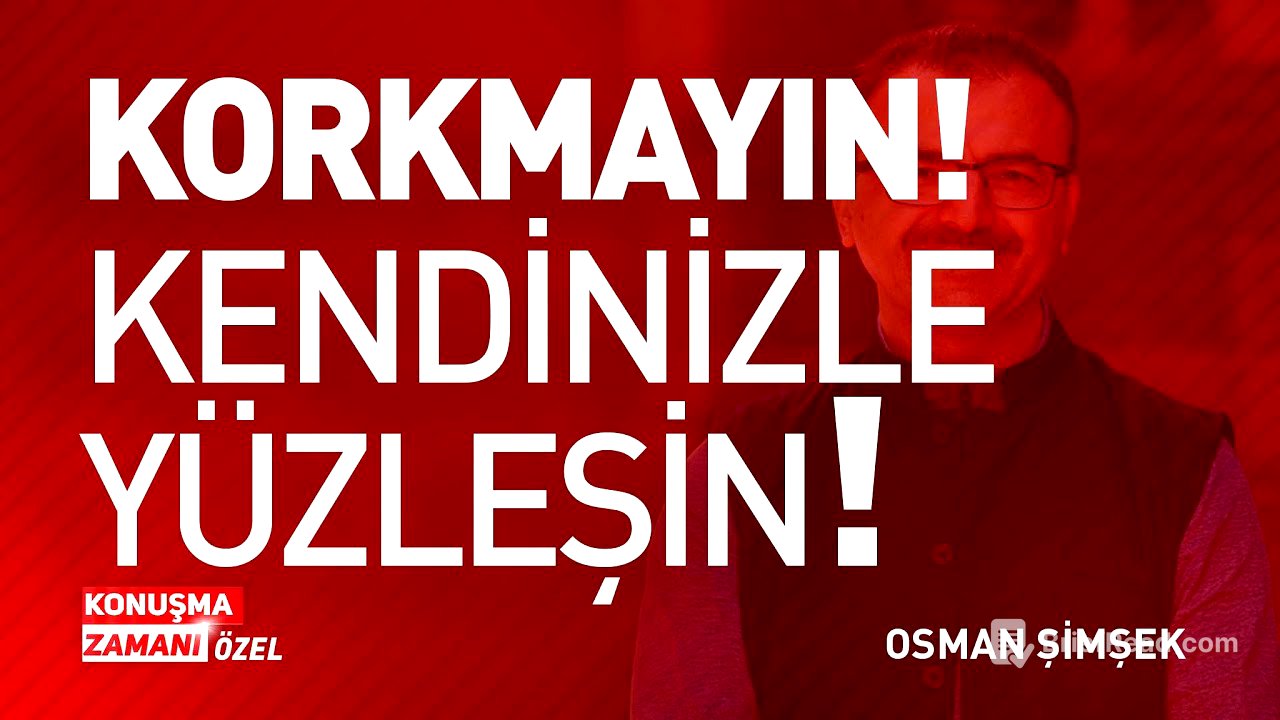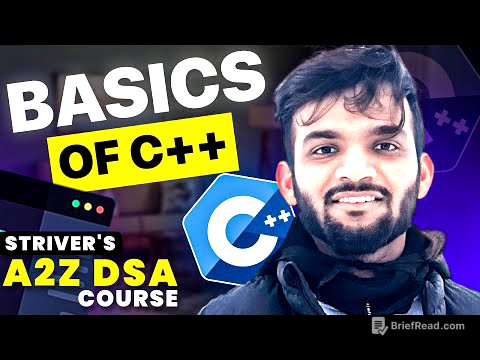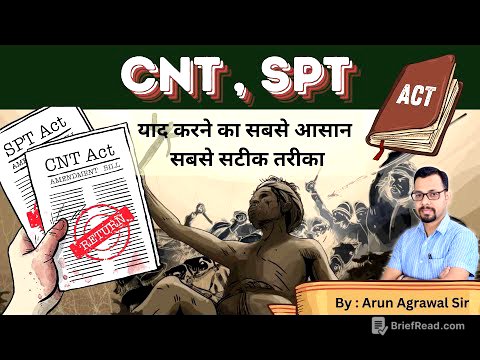TLDR;
This YouTube video features Asım Yıldırım in conversation with Osman Şimşek, discussing the Gülen movement, the July 15th coup attempt in Turkey, and related controversies. They explore the manipulation of information, the roles of key figures, and the impact on individuals associated with the movement. The conversation also addresses the importance of self-reflection, the need for unity, and the challenges faced by those who have been affected by the events.
- The Gülen movement and the July 15th coup attempt.
- The manipulation of information and the roles of key figures.
- The importance of self-reflection and the need for unity.
Poem Recitation [0:56]
The video begins with a recitation of a poem expressing themes of longing, separation, and the passage of time. The poem speaks of a "cloudy traveler," lost youth, and a yearning for a "moon-faced" figure, reflecting a sense of despair and a plea for return.
Introduction and Announcements [4:06]
Asım Yıldırım welcomes viewers to the broadcast, providing the date as Saturday, August 23, 2025. He shares contact information, including an email address (AsımYıldırı[email protected]) and Patreon account details, inviting viewers to support the channel. Yıldırım acknowledges Mahmut Akpınar and other media friends, emphasizing the importance of their support. He also mentions the availability of a PayPal account and a "join" button on YouTube for additional support. Yıldırım notes a change made to the broadcast, explaining that the live chat section has been temporarily closed to avoid distractions and insulting comments.
Osman Şimşek's Introduction and Initial Reflections [6:08]
Yıldırım introduces Osman Şimşek, highlighting his Twitter and Instagram accounts. Şimşek expresses gratitude for the invitation and extends his respects to the audience. He acknowledges the long-awaited conversation and references a previous broadcast where the idea of such a discussion was proposed. Şimşek notes that certain events have transpired since then, creating expectations among the audience.
Reactions and Criticisms After Previous Broadcasts [7:19]
Yıldırım asks Şimşek about the reactions, criticisms, and support he received after the previous broadcasts. Şimşek explains that he focused on two main topics: the July 15th coup attempt and the use of service volunteers in a strategy led by Erdoğan, which he believes was a trap. He emphasizes the innocence of the service and the oppression faced by many innocent individuals. Şimşek also mentions raising concerns about changes in the delegation and urging those involved to fear God and step back. He clarifies that he did not mention any names to avoid harming anyone's dignity.
Slander, Threats, and Manipulation [9:21]
Şimşek recounts that after the second program, unfounded news and slander were spread about him on social media. Efforts were made to manipulate his words and suppress his message. He also received threats and harassment, which he reported to the police, leading to recommendations for security measures. Şimşek expresses his distress over the manipulation of innocent people through slander, citing an example of a university student being criticized for listening to Şimşek. He also addresses false accusations about establishing a community with women and agreeing with the government, emphasizing his shame at such lies.
Clarifying the Broadcast's Purpose and Timing [11:59]
Yıldırım clarifies that the broadcast was planned in advance and not hastily arranged due to recent social media events. He explains that the broadcast was initially scheduled for August 2nd but was postponed due to scheduling conflicts. Şimşek adds that he had informed Abdulham Birici about his commitment to appear on Yıldırım's program, further emphasizing the planned nature of the broadcast.
Associating July 15th with the Gülen Movement [13:35]
Yıldırım introduces the central theme, questioning the association of the July 15th coup attempt with Fethullah Gülen. He asks for Şimşek's testimonies regarding Gülen's close contact with employees and their attempts to link the coup to him. Yıldırım emphasizes the importance of Şimşek's insights, given his long-standing connection to the movement and his understanding of Gülen's humanity.
Fethullah Gülen's True Nature and Intentions [15:21]
Şimşek asserts that Fethullah Gülen dedicated his life to God and sought only His approval. Gülen's focus was on faith, knowledge, and divine love, with no worldly ambitions such as taking over Turkey or acquiring land. Şimşek emphasizes that Gülen's sole desire was to share his love for God and the Prophet Muhammad with others. He illustrates this with an example of Gülen's consultations, where he would quickly bring matters back to Allah and the Prophet, infusing spirit into their lives.
Gülen's Compassionate Nature and the Misinterpretation of His Teachings [16:55]
Şimşek contrasts Gülen's compassionate nature with the actions of some who sought to undermine the service. He references America's hawks and a hadith describing those entering heaven as having hearts like sparrows, soft and sensitive. Şimşek emphasizes that Gülen always advocated for kindness, tenderness, and compassion. He criticizes those who attribute the regime's oppression to Gülen, arguing that it is a misinterpretation of his teachings.
Historical Background: Access to Gülen in America (1999) [19:08]
Şimşek provides a historical context, starting with his arrival in America in 1999. He explains that access to Gülen was limited, with communication primarily through Cevdet Bey's phones. Mustafa Özcan had frequent contact with Gülen, while others struggled to reach him. This created a power dynamic where those who could facilitate communication gained significant influence.
Changes in Access and the Introduction of New Assistants [20:49]
Şimşek details a change in the system around 2000, where student friends who had been assisting Gülen were replaced by four individuals appointed by Cevdet Bey: Cüneyt, Hakan, Enes, and Birlik. The stated reason was a concern about potential MIT infiltration, which the students found difficult to accept. Despite their objections, Gülen allowed the new assistants to help Cevdet Bey while permitting the students to continue providing tea, water, and food.
Control of Information and the Rise of Fear [22:35]
Şimşek explains that Mustafa Özcan and Cevdet Bey controlled access to Gülen, and the four new assistants further tightened this control. They monitored all communication and punished any perceived negative actions. While Şimşek believes these individuals were initially well-intentioned, they became stronger through in-service politics and fell into a path contrary to their essence. He notes that Mustafa Özcan, Cevdet Bey, and Dr. Sinan brought information, sometimes related to service matters and sometimes to external issues, drowning Gülen in information.
The Creation of a Climate of Fear and Control [25:06]
Şimşek describes how the constant influx of secret information created a climate of fear. Those who aligned with Mustafa Özcan, Cevdet Bey, and Dr. Sinan were favored, while those who objected faced potential repercussions. He emphasizes that the control of information and its presentation through a filter did not happen suddenly but evolved over time. The news was expected to come from four channels and was tested against each other, reinforcing the information's credibility.
Gülen's Trust in His Friends and Awareness of Exaggeration [26:52]
Şimşek asserts that Gülen trusted his friends and service brothers greatly, even though he was aware of exaggerated expressions and inflated numbers in presentations. He provides two pieces of evidence: Gülen's strong defense of his followers during a debate, where he invoked severe consequences for any actions against the spirit of religion, and Gülen's post-July 15th admissions of being defeated by his good opinion and deceived by hypocrisy.
Gülen's Post-July 15th Reflections and the Role of Mehmet Değerli [29:59]
Şimşek recounts Gülen's reflections after July 15th, including his article titled "I Am Afraid," where he expressed regret for falling into the error of good faith and trusting those who turned out to be hypocrites. He notes that the news sources reaching Gülen had been reduced to one, and the impossibility of drilling it. Şimşek then transitions to summarizing the July 15th process, focusing on the role of Mehmet Değerli, who frequently visited the camp in late 2014 and early 2015, claiming to be a key source of information.
Mehmet Değerli's Claims and the Atmosphere of Fear [31:13]
Şimşek explains that Mehmet Değerli claimed to have regular meetings with Land Forces Commander Hulusi Akar and brought messages from him. He also asserted that Hulusi Akar would lead a coup supported by the USA, Britain, and NATO. These claims were made during a difficult time for the service, with schools and nurseries being raided and insults being hurled at Gülen. The information created an atmosphere of fear and uncertainty.
The First Letter from Hulusi Akar and Gülen's Response [32:36]
Şimşek recalls receiving the first letter from Hulusi Akar, brought by Mehmet Değerli, around December 2014. He describes the letter as respectful and written in a language that only a student could use. The letter detailed the October 2014 National Security Council meeting, where Gülen and the service were heavily criticized. Akar expressed his opposition to Erdoğan's increasingly authoritarian rule and sought Gülen's thoughts.
Gülen's Emphasis on Democracy and Opposition to Bloodshed [35:20]
Şimşek recounts Gülen's response, emphasizing the importance of democracy both at home and abroad. Gülen instructed Şimşek to write a letter emphasizing that the soldier is under command and that they have no say. He also expressed that Turkey's unity of Islam and democracy should be an example to the world and that bloodshed and violence should be avoided. Şimşek wrote the letter, and Mehmet Değerli insisted on an oath paper, but Şimşek printed it on regular paper and ensured that his fingerprint was on it instead of Gülen's.
The "Beautification" of Hulusi Akar and the Legion of Merit Medal [37:42]
Şimşek notes that after the letter was sent, a "beautification" of Hulusi Akar began within the camp and the service. He also mentions that Hulusi Akar received the Legion of Merit medal at the Pentagon on January 27, 2015, for his contributions to NATO. This event was perceived as a sign of American support for Akar, further reinforcing the belief in his importance.
The "Spirit in the Military" and the Rain of Dreams [39:14]
Şimşek recounts how Hulusi Akar was compared to a "spirit in the military," referencing a story about Mustafa Sungur, a student of Bediuzzaman Said Nursi. This comparison led to Hulusi Akar being portrayed as an intelligence genius who was dedicated and selfless. Dreams about Hulusi Akar began to surface, with Doctor Kudret brother reading dreams and collars written down and sent.
The Step-Son of the Teacher and the Testing of News [41:51]
Şimşek explains that Hulusi Akar was even described as the stepson of the teacher, and that he was of the same disposition as His Excellency Uwaysal Karne. He also notes that Gülen tested the news and messages he received, evaluating them through different channels and sending people to Turkey for research. However, negative news was often warded off, and those who brought it were labeled as in-service clients.
The Impossibility of Not Being Deceived and Three Examples of Deception [43:39]
Şimşek argues that it was perfectly normal for Gülen to be deceived, as it would require revelation to avoid such traps. He emphasizes that being deceived does not diminish Gülen's value. Şimşek then promises to provide three examples of how they were deceived, emphasizing the accuracy of his account.
The First Example: The June 7 Elections [45:17]
Şimşek recounts how Mehmet Değerli kept giving dates and insinuations about upcoming events, such as the June 7 elections. Değerli claimed that there would be no election and that Hulusi Akar said there was no need to think about the outcome. However, the election took place, and Değerli's team had to find another lie to correct the situation.
The Second Example: Hulusi Akar's Wife and Daughter [46:11]
Şimşek recounts how Hulusi Akar supposedly sent a personal message saying that he entrusted his wife and daughter to Gülen's care and that they would be sent to America. Mehmet Değerli claimed to have met Akar's wife and daughter in New York and arranged a nice apartment for them. However, Gülen began having nightmares about a cobra in his bed, and Şimşek discovered that Hulusi Akar was with his family in Istanbul on the night Değerli claimed to have taken them to dinner.
The Third Example: The Helicopter Photo [50:36]
Şimşek recounts how Mehmet Değerli entered the room with a self-ordered attitude, claiming that Hulusi Akar had sent a picture message. Değerli showed Gülen a photo, which Gülen described to those present. Şimşek immediately searched for the photo online and discovered that it was an old picture that had been posted years before. When confronted, Gülen acknowledged the discrepancy but did not take further action.
Hulusi Akar's Chief of General Staff Outfit [53:52]
Şimşek shares a final example of deception. After Hulusi Akar became Chief of General Staff, he sent his outfit from the handover ceremony to Hoca Efendi as a gift. Hoca Efendi was very emotional and cried, seeing it as a sign of hope for the country and humanity. However, Şimşek emphasizes that they played with such a person's feelings and deceived them.
The Aftermath and Mehmet Derne's Departure [58:12]
Şimşek notes that Mehmet Derne stayed in the camp for 1.5 years and that he reported his lies to Gülen. He also mentions that others came forward with similar information. The last straw was when Barbaros Kocakurt's wife saw a prayer rug that Değerli claimed to have sent to Hulusi. When confronted with this information, Gülen asked for a video call with Hulusi, which Değerli could not produce, leading to his departure from the camp.
The Continued Influence of Hulusi Akar and the Trap of Inaction [1:01:57]
Şimşek explains that even after Mehmet Derli's departure, Hulusi Akar's influence continued. He emphasizes that the biggest trap was dragging the service into inaction, waiting for Hulusi to do something. This led to the loss of people, institutions, and opportunities. Şimşek also references Gökhan Sönmez Ateş's testimony in court, which supports the idea that the service was not directed or convinced.
Call for Resignations and Accountability [1:16:01]
Şimşek calls for those who knowingly or unknowingly caused the events before and after July 15th to resign from their duties. He emphasizes that these individuals should continue their lives as service volunteers but should not be in positions of power. Şimşek also notes that Mustafa Özcan attended a unit members' meeting a day after Gülen's death and said that he had been doing this for years and that they should continue their work.
Adil Öksüz: MIT Agent or Deceived Individual? [1:20:46]
Yıldırım shifts the focus to Adil Öksüz, questioning his true identity and role. Şimşek references Gülen's statement that he did not know Adil Öksüz and the speculation that he was a MIT agent. Şimşek expresses his belief that Öksüz was deceived and that it is not possible for a person to be bought and sold in such a way.
Şimşek's Personal Connection to Adil Öksüz and His Sincerity [1:26:34]
Şimşek shares his personal history with Adil Öksüz, noting that he has known him for years and that they studied together in Ankara. He recalls Öksüz as a sincere and good person, which makes it difficult for him to believe that he was a MIT agent. However, he acknowledges Öksüz's reckless behavior and his association with Kemal Batmaz.
A Call for Adil Öksüz to Come Forward [1:28:39]
Şimşek calls on Adil Öksüz to come forward and tell the truth if he has any conscience or fear of the afterlife. He urges him to apologize to the nation and seek God's forgiveness. Şimşek also expresses his anger towards Öksüz but emphasizes that he does not want to fall into the trap of defending someone like him.
The Lure of Power and Worldliness [1:29:32]
Şimşek reflects on how some individuals could not resist the lure of power, wealth, and position. He suggests that these individuals were poisoned by worldliness and lost their humanity. Şimşek calls on them to come forward and tell the truth, even if they were MIT agents, for the sake of Gülen and the memories they shared.
Allegations of Contact with Adil Öksüz and the Importance of Truth [1:32:11]
Yıldırım mentions allegations that some unitists are still in contact with Adil Öksüz and asks for Şimşek's evaluation. Şimşek states that he does not have any information about such contact and does not want to comment on what he does not know. He reiterates the importance of telling the truth and questions why Öksüz remains silent.
The Importance of Remembering the July 15th Trap [1:34:28]
Şimşek emphasizes that the July 15th coup attempt was a trap and that its perpetrators are Erdoğan, Hulusi, and the sapling. He also acknowledges that the service was infected and urges those who made mistakes to apologize. Şimşek also shares that he is not a judge and that he is not trying to hand over criminals to the regime.
The Need for Unit Members to Resign and the Importance of Service [1:35:30]
Şimşek reiterates his call for unit members to resign and emphasizes the importance of service. He also notes that Mustafa Özcan continued to encourage unit members to continue their work after Gülen's death. Şimşek also shares that he is not a judge and that he is not trying to hand over criminals to the regime.
The Importance of a Delegation and the Need for Spiritual Guidance
Şimşek emphasizes the importance of a delegation and the need for spiritual guidance. He notes that the existence of the committee is a sign of God and a blessing. Şimşek also shares that he is not a judge and that he is not trying to hand over criminals to the regime.
The Structure of the Delegation and the Influence of Mustafa Özcan
Şimşek explains the structure of the delegation, noting that there was only one committee at the time and that it was not separated into execution and consultation. He also mentions that Mustafa Özcan was on the delegation when he started joining the delegation. Şimşek also shares that he is not a judge and that he is not trying to hand over criminals to the regime.
The Reaction Against the Committee and the Division of the Delegation
Şimşek notes that there was a tremendous reaction against the committee and that a campaign was launched. He also mentions that the delegation was divided into two: execution and advisory. Şimşek also shares that he is not a judge and that he is not trying to hand over criminals to the regime.
The Importance of Resignation and the Need for Self-Confrontation
Şimşek emphasizes the importance of resignation and the need for self-confrontation. He also notes that some names would not be in the existing delegation at the will of the teacher. Şimşek also shares that he is not a judge and that he is not trying to hand over criminals to the regime.
The Importance of the Quran and the Sunnah and the Need for Confrontation
Şimşek emphasizes the importance of the Quran and the Sunnah and the need for confrontation. He also notes that the teacher is truly exquisite and did the accounting. Şimşek also shares that he is not a judge and that he is not trying to hand over criminals to the regime.
The Importance of Accounting and the Need for Forgiveness
Şimşek emphasizes the importance of accounting and the need for forgiveness. He also notes that the teacher said, "I waited so long for so and so." Şimşek also shares that he is not a judge and that he is not trying to hand over criminals to the regime.
The Importance of Not Forgetting the July 15th Trap
Şimşek emphasizes the importance of not forgetting the July 15th trap. He also notes that the abolitionists are preparing the ground for the label. Şimşek also shares that he is not a judge and that he is not trying to hand over criminals to the regime.
The Importance of Not Engaging in Separatism and the Need for Unity
Şimşek emphasizes the importance of not engaging in separatism and the need for unity. He also notes that counting all the negativities at once makes the view look pitch black. Şimşek also shares that he is not a judge and that he is not trying to hand over criminals to the regime.
The Importance of Not Being a Complete Brother and the Need for Loyalty
Şimşek emphasizes the importance of not being a complete brother and the need for loyalty. He also notes that he has never called anyone his lord or his pasha. Şimşek also shares that he is not a judge and that he is not trying to hand over criminals to the regime.
The Importance of Not Being Afraid and the Need for Truth
Şimşek emphasizes the importance of not being afraid and the need for truth. He also notes that he is someone who spent his 9th year in America. Şimşek also shares that he is not a judge and that he is not trying to hand over criminals to the regime.
The MIT Operation and the Need for Sincerity
Şimşek emphasizes the importance of sincerity and the need to avoid being used by MIT. He also notes that the regime is trying to weaken and finish them off. Şimşek also shares that he is not a judge and that he is not trying to hand over criminals to the regime.
The Importance of Not Being Sure of Ourselves and the Need for Humility
Şimşek emphasizes the importance of not being sure of ourselves and the need for humility. He also notes that he is uncomfortable with what he is saying here. Şimşek also shares that he is not a judge and that he is not trying to hand over criminals to the regime.









